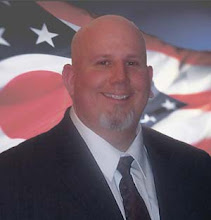With today (June 17) marking the 40th anniversary of President Richard M. Nixon's declaration of the so-called War on Drugs, Libertarian Party National Executive Director Wes Benedict has released an astute assessment of where four decades of American drug policy has left our country. I would encourage everyone to read the LP's official statement.
Closer to home, as Ohio tries to solve its own concerns with overcrowded prisons and the bloated costs of the state's criminal justice system -- and specifically corrections -- the War on Drugs continues to exacerbate that problem.
Kevin O'Brien highlighted this problem two years ago when he wrote in the Cleveland Plain Dealer, explaining (out of the more than 52,000 total prison population in the Buckeye State) on a year-to-year basis Ohio incarcerates more than 28,000 individuals, out of which nearly 16,000 are imprisoned for non-violent felonies -- these are crimes for which they are sentenced to a year or less -- and basic possession and "low-level dealing" account for roughly 5,600 of that annual imprisonment rate.
That was in 2009 and the numbers continue to rise.
Prison crowding and the inevitable skyrocketing costs that come with it are just two of the unintended-yet-avoidable consequences of the needless War on Drugs. There also are the tolls taken on families and communities across America. The cold, hard truth on drug-related violence is that only a small percentage of it is committed by individuals while they are under the influence. The violence associated with drugs that shatters our neighborhoods is conducted by those who make their living off of its continued prohibition.
A great deal of that could be forestalled just through legalization of naturally occurring substances such as marijuana, the raw coca leaf, and even poppy plants. To accomplish this, the long-held notions that marijuana (and other natural intoxicants) is a gateway drug to harder substances and leads its users down a path of criminal behavior need to be laid to rest. As with Prohibition following ratification of the 18th Amendment, once alcohol was driven into the shadows those who still desired to consume it went into the shadows in search of it.
And as common sense will tell us, it is in those shadows where the darker elements of our society -- and the harder drugs -- typically are found.
The same holds true for today's War on Drugs. As has been pointed-out on many occasions in recent years, once we begin to address drug addiction in the same manner as alcoholism -- that it is a disease as opposed to a criminal matter -- progress finally will be made on reducing its impact in America.
Subscribe to:
Post Comments (Atom)

No comments:
Post a Comment